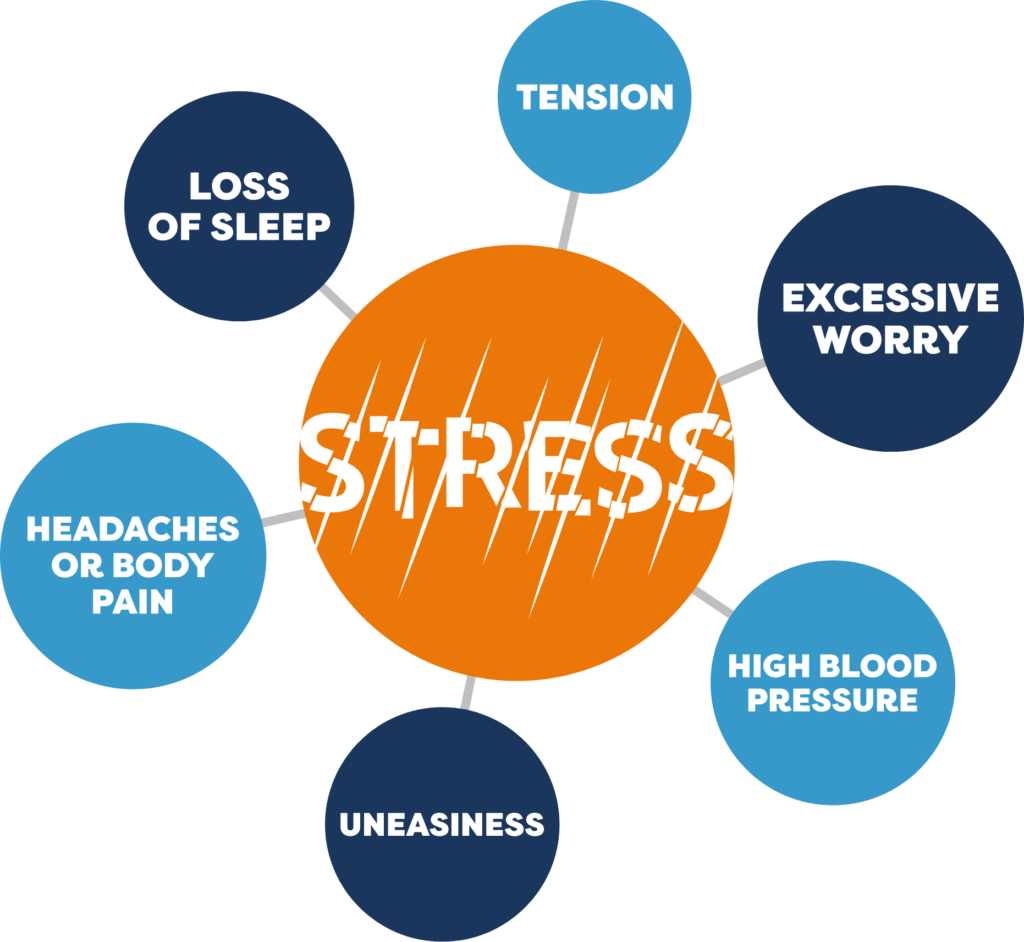Dealing with Stress and Anxiety: How to Understand and Cope with Them in 2024
In today’s world, stress and anxiety are everywhere. People use these words interchangeably, but they aren’t the same thing. They have different causes and effects on our daily lives. Knowing the difference between them is essential so you can handle them better. Here, we’ll talk about what stress and anxiety are and how they show up in our lives. We’ll also give you some tips on how to deal with them in 2024.

Stress vs. Anxiety: Deciphering the Difference
Stress is typically a response to an external trigger, such as facing a tight deadline at work or having a disagreement with a friend. It’s characterized by a specific cause, and, most importantly, it usually dissipates once the triggering situation is resolved. Stress is not universally negative; sometimes, it can serve as a motivating force, pushing us to complete tasks or meet challenges head-on. However, it can lead to adverse outcomes such as sleep disturbances or reduced productivity when it becomes overwhelming.
Anxiety is a persistent feeling of apprehension or dread that often arises from within. Unlike fear, anxiety is not necessarily linked to immediate external threats. It can be characterized by a constant background noise that doesn’t fade away even after resolving a stressful situation. Anxiety can significantly interfere with daily life, making it difficult to focus, relax, or sleep.
Shared Symptoms: The Mind-Body Connection
Stress and anxiety can manifest in different ways, affecting both the body and mind. People may experience excessive worry, uneasiness, or tension. Physical symptoms can also be present, such as headaches, body pain, high blood pressure, and insomnia. These shared symptoms emphasize the connection between the mind and body. They help highlight the significance of taking a holistic approach to managing and treating them.
Coping Strategies for Stress and Anxiety in 2024
Mental health awareness is at an all-time high, there are numerous strategies and tools available for coping with stress and anxiety. Here are some contemporary approaches:
- Digital Detoxes and Mindful Technology Use: In 2024, acknowledging technology’s role in our stress levels has increased emphasis on digital detoxes and mindful technology use. Allocating specific times of the day to unplug can significantly reduce stress and anxiety levels, allowing our minds to reset and recharge.
- Virtual Therapy and Support: Teletherapy has become a mainstream method for accessing psychological support, offering a flexible and accessible way to receive professional help. Virtual support groups also provide a sense of community and understanding, making navigating tough times more manageable.
- Personalized Wellness Apps: Wellness apps offer personalized stress and anxiety management plans, integrating meditation, breathing exercises, and cognitive-behavioral therapy (CBT) exercises to manage symptoms anytime. Here are a few of our favorites: Headspace, Calm, Happify, and Shine.
- Physical Activity: The connection between physical activity and mental health is becoming increasingly evident. Regular exercise, such as yoga, running, or even taking a short daily walk, can significantly alleviate symptoms of stress and anxiety. This is because physical activity releases endorphins and provides an effective outlet for releasing tension.
- Journaling and Expressive Writing: Writing down your thoughts and feelings can be a powerful way to process stress and anxiety. Journaling and expressive writing can help you identify triggers, reflect on your experiences, and find patterns that may be contributing to your stress or anxiety levels. It’s a beneficial practice that provides a safe and creative outlet to explore your emotions, improve your mood, and reduce your overall stress levels.
- Learning to Say No: Learning to say no is one of the most empowering strategies for managing stress. It involves setting boundaries and rejecting demands or tasks we cannot handle. In 2024, there is a growing recognition of the importance of prioritizing personal well-being. This realization has led people to be more mindful of their commitments and to focus on what truly matters to them.
Closing Thoughts
It’s important to distinguish between stress and anxiety so that we can find the best ways to cope with them. Although both can significantly impact our well-being, it’s empowering to know that we can manage and reduce their effects. As we continue to navigate the complexities of the modern world, we should prioritize our mental health and embrace the challenges and solutions that come our way.
Remember that recognizing when you’re feeling stressed or anxious is only the first step. Managing your mental health is a continuous journey, but with appropriate tools and support, it’s entirely possible to lead a fulfilling and balanced life. To discover more tips and strategies customized to assist you in coping with stress and anxiety in 2024. We encourage you to explore additional resources and articles dedicated to your well-being.